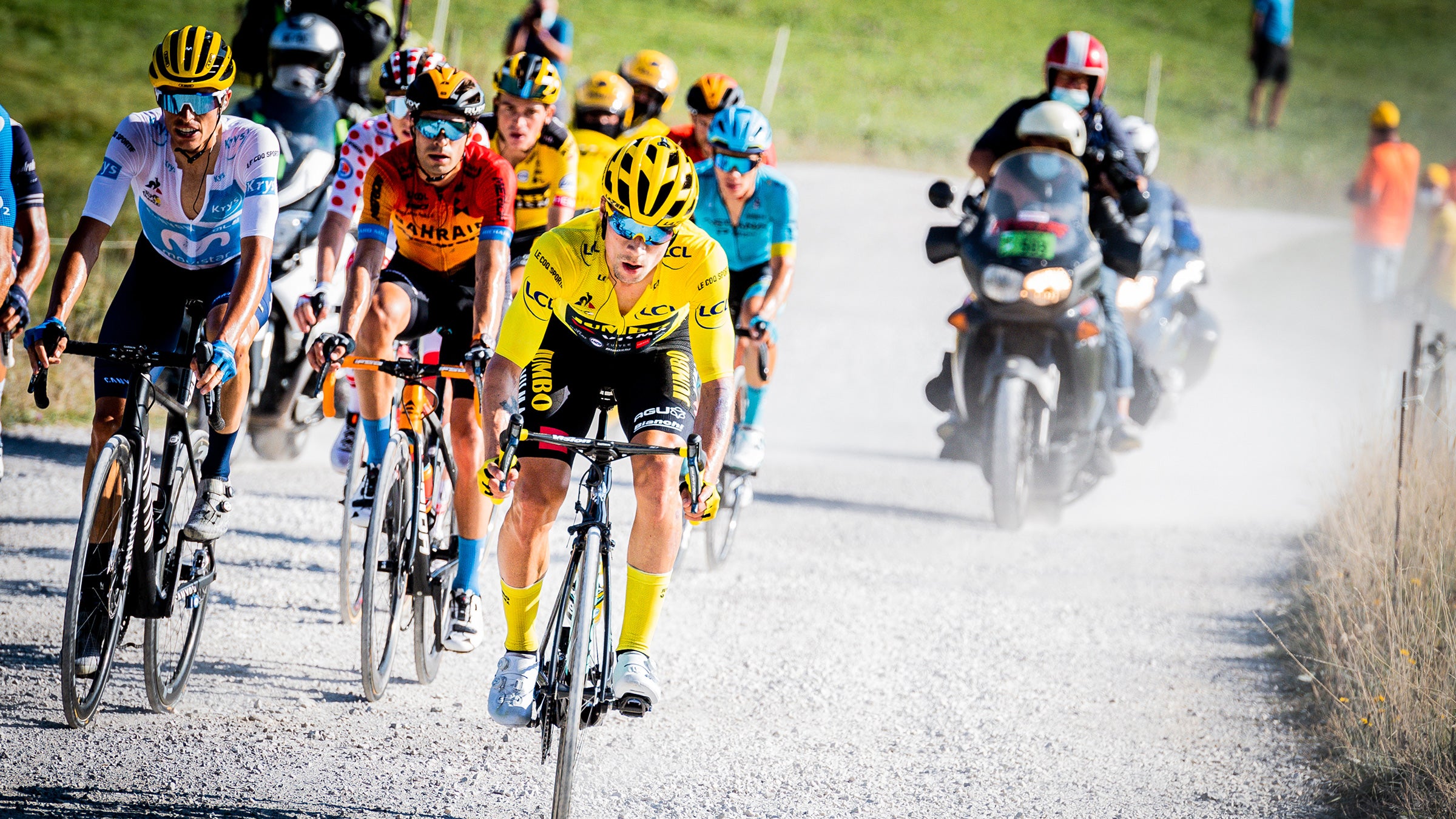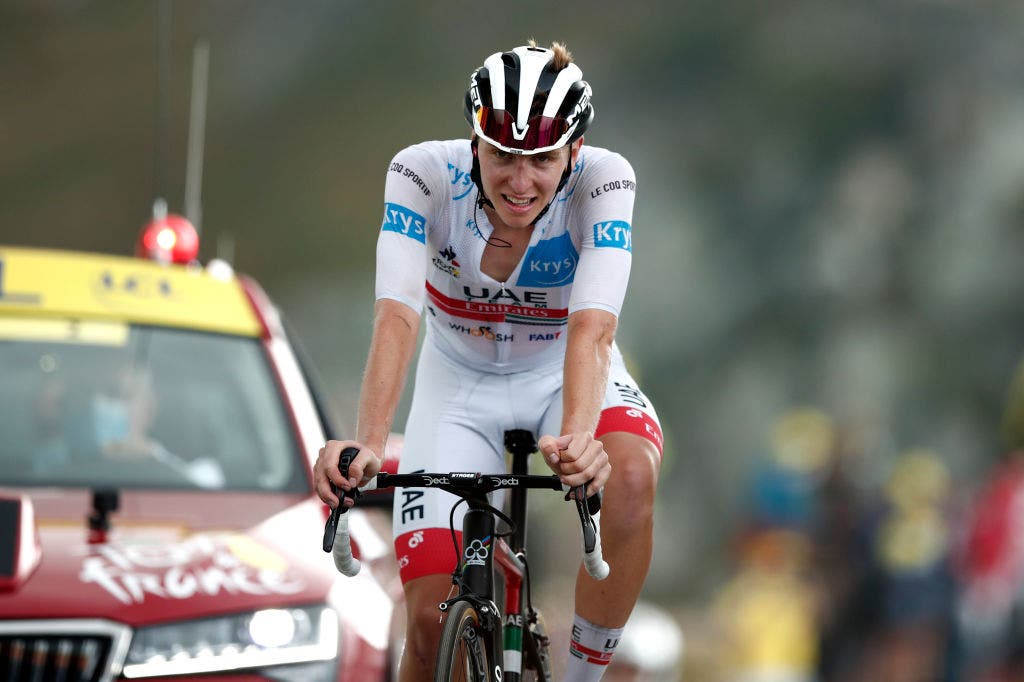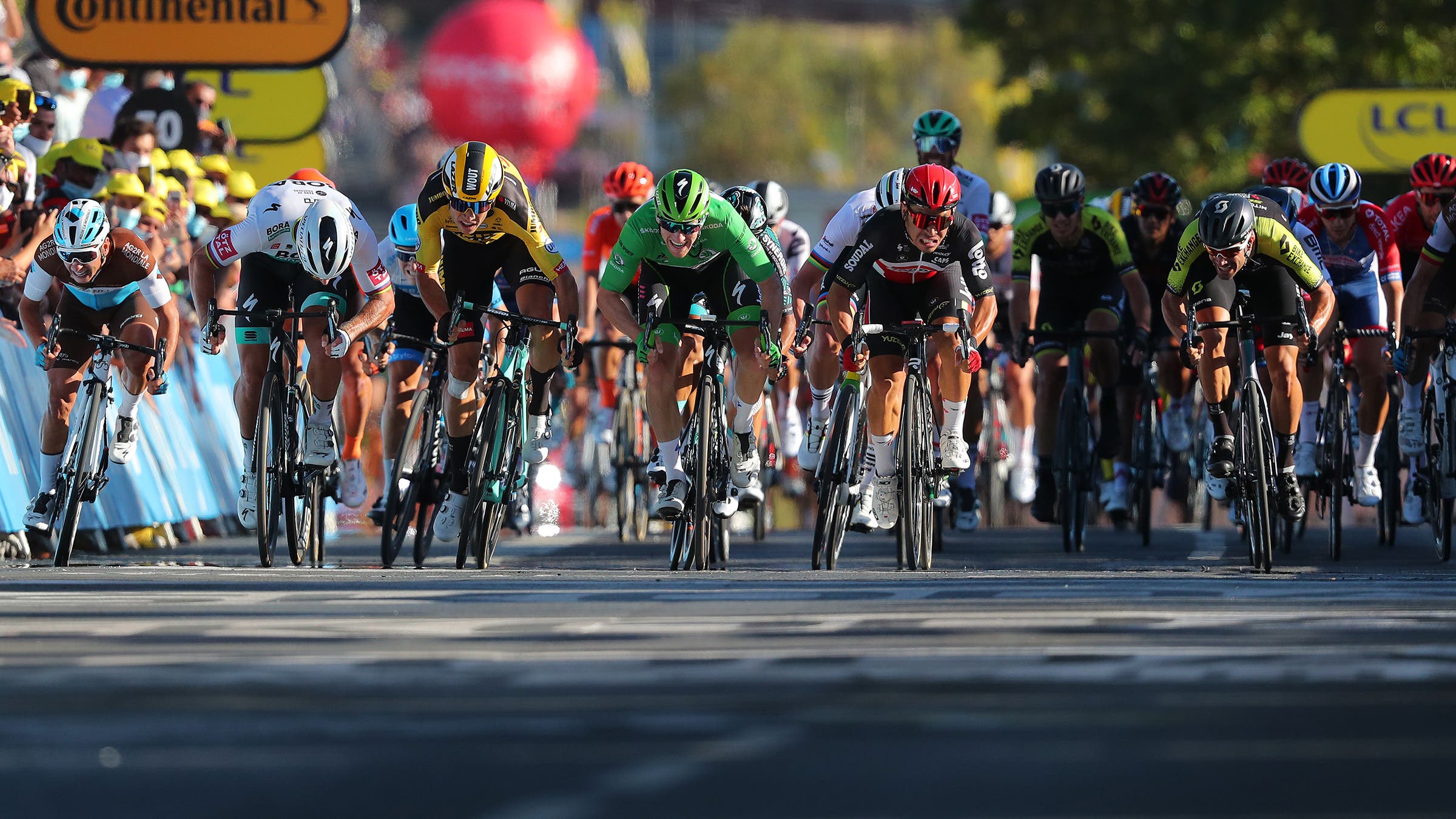Tour de Hoody: Being wrong about the Tour de France never felt so good

The Tour de France is ending very differently than how I expected it would three weeks ago in Nice.
The lovely thing about bike racing is that it invariably serves up surprises. And just about every expectation I had when the Tour started has been turned upside down.
Related:
- Tour de Hoody: Sepp Kuss the Tour de France media star; Ineos-Grenadiers not slowing down
- Tour de Hoody: Reasons for Ineos’ Tour de France collapse; underdog attackers; Thomas De Gendt’s best chance
- Tour de Hoody: Hoping for the ‘Hail Mary’
I expected Jumbo-Visma to put up a fight, but I also expected Egan Bernal to pull on the yellow tunic Sunday in Paris. I only got that one-half right.
I expected Sepp Kuss to go well in this Tour, but not nearly as well as he’s done. What an impressive performance by this fine young American climber. He was consistently the last man for team captain Primož Roglič in all the key climbing stages, and really came into his own in the third week. Again, glad I underestimated that one by good measure.
I didn’t know what to expect from Neilson Powless, and he delivered one surprise after another, riding into four breakaways, and hitting the top-5 in two stages. Another encouraging Tour debut for the next generation of American riders in the Tour.
Another unexpected surprise from this Tour is how laid back and chilled out the whole thing was.
I was expecting an excess of police, roadblocks, controls, extreme health measures, and just overall tension and nerves. While there were plenty of health protocols and mitigation efforts inside the actual race, the overall scene in and around the race was much calmer. Everyone was masked-up, and just got on with it.

Perhaps it’s because almost no one could get here. Except for a smattering of Belgian and Slovenian fans, a good chunk of the public on the side of the road were French retirees.
The weather — except for the first day — was exceptional from Nice all the way into the final weekend. July is often hot, sticky, and overbearing. With its crisp mornings and sunny afternoons, September is a fine month to hold a bike race in France.
Most of all, I expected the 2020 Tour to be thrown into chaos by the coronavirus, with teams being kicked out, stages being forced to cancel, and the race hobbling into Paris a sort of a COVID-19 asterisk next to the winner. Happily, I’ve been wrong on all three of those scores.
Barring any last-minute disasters, the Tour will arrive in Paris on Sunday. It was the result of an extraordinary amount of work, dedication, and commitment from everyone inside the Tour de France organization, local, regional and national French government authorities, and by the teams and riders.
I’ve never been so pleased to be so wrong about so many things.

Time trial nerves, time trial possibilities
Since I’ve been wrong in so many of my expectations about the Tour, I just don’t know what to expect in Saturday’s climbing time trial.
Based on what we’ve seen in the mountains, Tadej Pogačar has run out of gas, and it’s hard to imagine him erasing the 57-second disadvantage to his compatriot. Though Pogačar beat Roglič in June at the Slovenian national championships, Roglič is a proven better time trialist.
I fully expect Roglič to get the win to drill home his overall victory.
Looking over their shoulders, I also don’t see Richie Porte overcoming the 1:29 deficit to Miguel Ángel López for the final podium spot in Paris. The sharp final climb in the TT should keep “Superman” in the third spot. Porte should be able to chip away at the gap, however, so it could be close.
I can imagine it’s got to be better to lose the final podium spot by a relatively big gap — say 20 to 30 seconds — than how Mikel Landa lost third by one second in the 2017 Tour to Romain Bardet.
Most of the top riders are swapping bikes midway through the stage.
They will ride a full TT setup to the base of the climb, and then swap out for a lighter, easier-geared time trial bike. Rules say that the bikes must be swapped out from a following team car, not from a staffer on the side of the road, and that they can only push the rider after the swap for five seconds.
Still time for more infractions
It’s been an interesting Tour de France in terms of how the race jury is apparently clamping down.
The jury let it be known it was going to be taking a firm hand when it gave a 20-second time penalty against Julian Alaphilippe for an illegal feed too close to the finish line. In the old days, the jury would have never penalized a French yellow-jersey holder for such a rather innocuous infraction.
Another ruling that some said was a bit heavy-handed was against Peter Sagan in his shoulder-barge against Wout van Aert in Poitiers. Most sprinters I talked said they didn’t think that it was so bad a move it warranted relegation. Sagan didn’t cause a crash, and he might well have prevented a bigger one by bumping van Aert to make room coming up the fences.
Those two rulings cost Alaphilippe the yellow jersey for several more days, and probably cost Sagan a good shot of a green jersey in Paris.
The rules are the rules, and there must be respect — at least that’s what it seems the jury is saying.

The latest big ruling was the expulsion of one of Jumbo-Visma’s top sport directors after a blowout at the top of the Col de la Loze on Wednesday. Sources told me the sport director started to chide and insult the two UCI technicians doing the post-stage bike checks when they told him they wanted to disassemble Primož Roglič’s bike.
I couldn’t get official confirmation, but I have not heard of many bikes being taken apart in any race. No one had the official tally, but it is rare to see a race leader’s bike to be taken apart after it was put through the UCI’s mobile X-ray machine.
Does that mean the technicians had a legitimate question about the bike? Were they signaling a deterrence to the peloton? Was there some trigger in the UCI protocol to initiate the bike check? All good questions.
According to the rules, the UCI can disassemble any bike at their discretion.